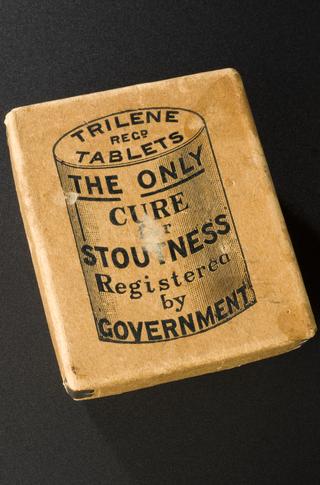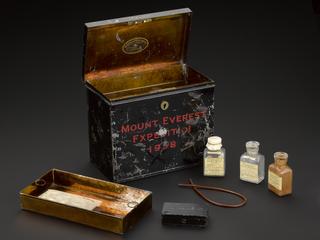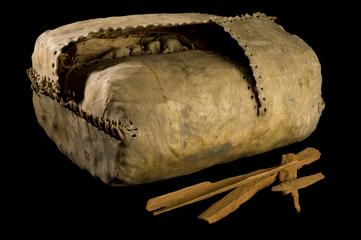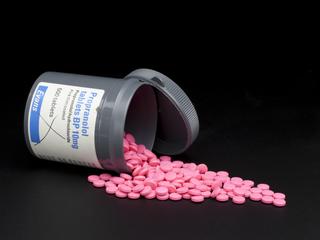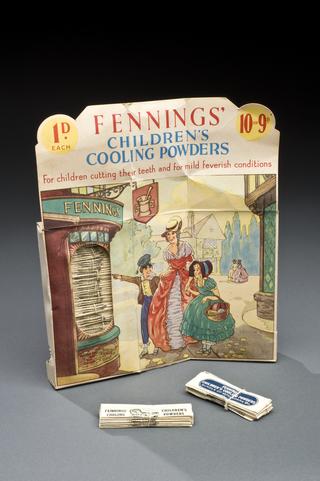




Pocket dispensary containing 8 ampoules of drugs, by Laboratoires Fraisse, French
Each of the eight coloured glass tubes corresponds to a different drug, making it easy to identify in an emergency. Some of the liquids are familiar to us, although their uses might not be. The blue glass contains caffeine, which was believed to help relieve pain as well as acting as a stimulant. The white glass contains ether, a popular anaesthetic, to numb the patient and stop them feeling any pain from their injuries. Among the more unusual liquids is the ‘ergotine’ in the brown glass tube. This was a medicine used to control heavy bleeding. In the brown red tube is novocaine - another pain reliever. All the liquids were to be given by injection. The kit is shown here with a similar example (A629765).
Details
- Category:
- Materia Medica & Pharmacology
- Collection:
- Sir Henry Wellcome's Museum Collection
- Object Number:
- A629763
- Materials:
- case, aluminium and ampoule, glass
- Measurements:
-
overall: 15 mm x 82 mm x 96 mm, .06kg
- type:
- first aid kit
